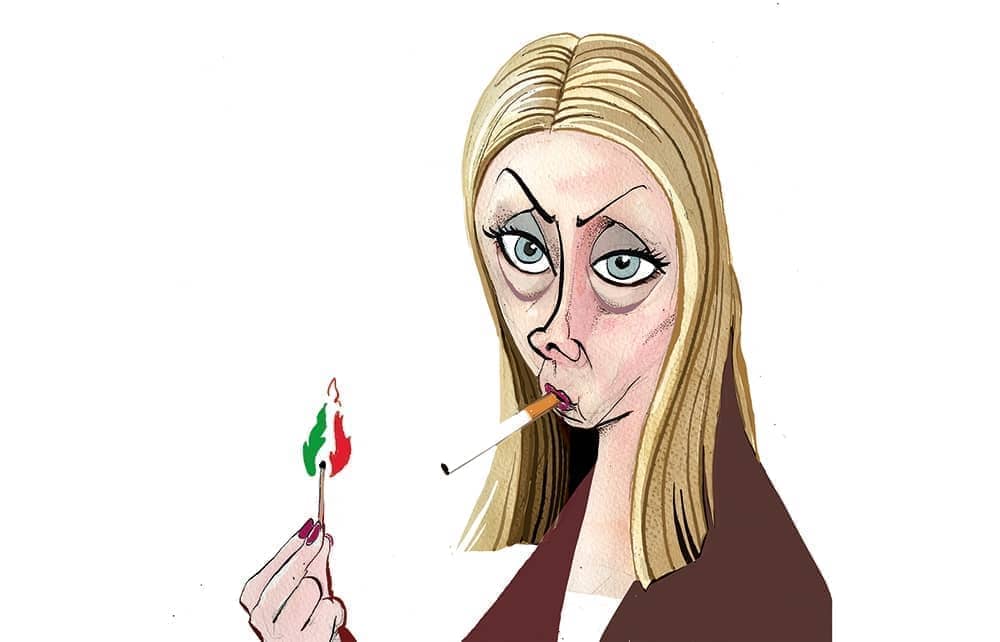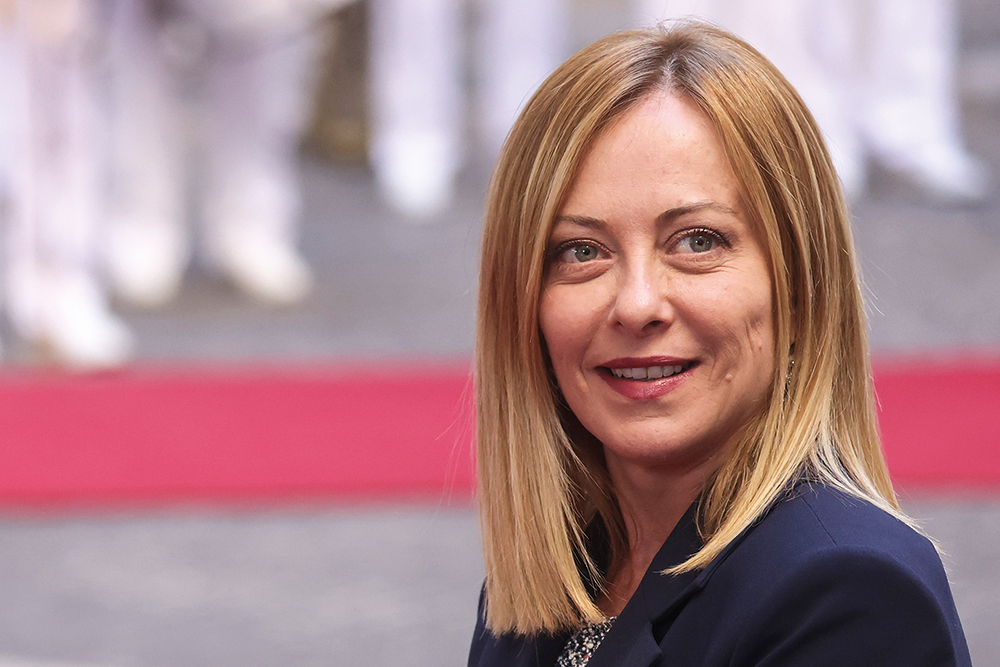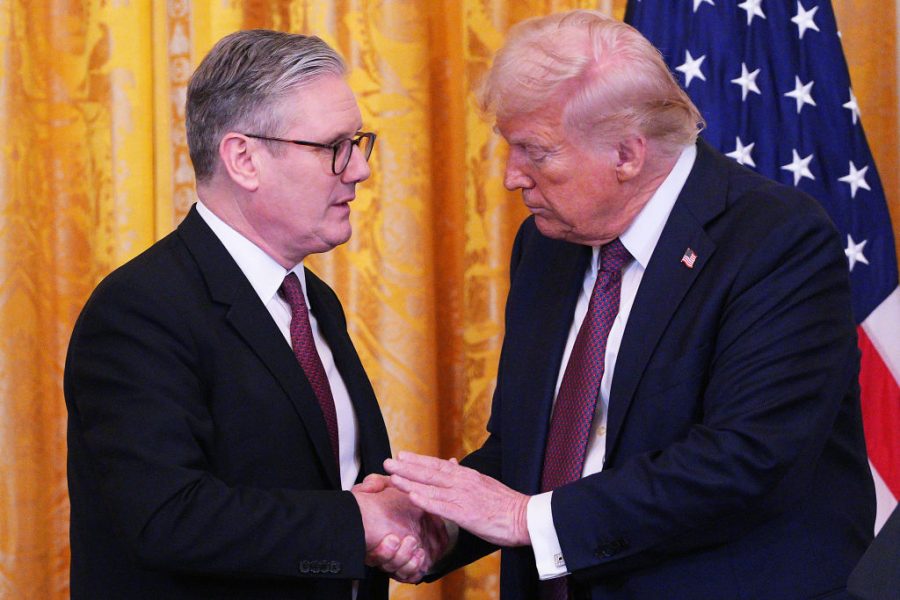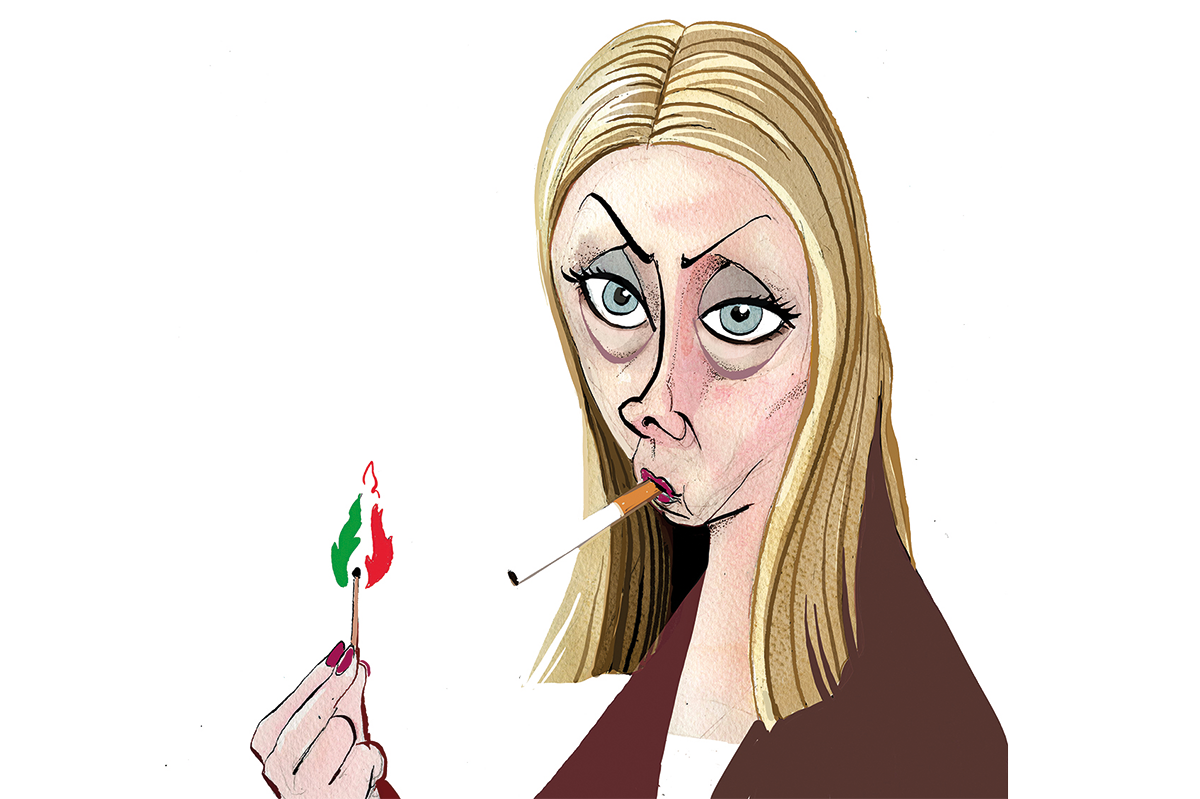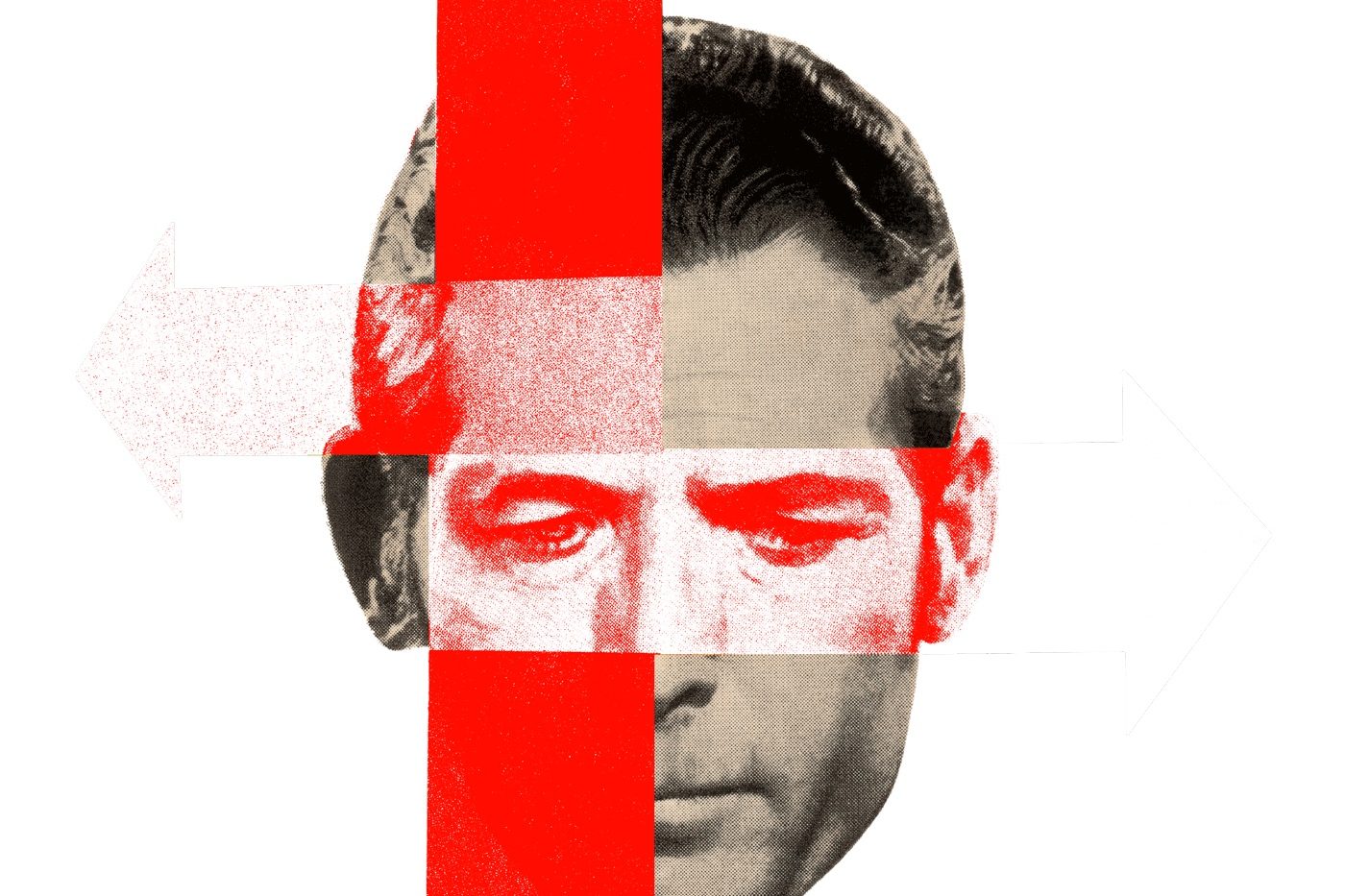Ravenna, Italy
Italy’s first female prime minister, Giorgia Meloni, is steadily becoming the most important political leader in Europe. Some are even saying that it is her destiny to be the next Angela Merkel. If so, that would mean a dramatic change in direction for the European Union towards what she calls a confederal, instead of a federal, Europe — a Europe of sovereign nations rather than a superstate which, she told Italy’s most famous talkshow host Bruno Vespa, would “do less, do better.”
Meloni, forty-six, heads a right-wing coalition — comprising her Fratelli d’Italia party plus two junior partners, Matteo Salvini’s Lega and Silvio Berlusconi’s Forza Italia — that won a hefty majority at September’s general election. In doing so, she became the first elected prime minister in Italy since 2011. None of the previous six were leaders of a party or coalition that won an election when appointed. Four were not even MPs.
The opposition left-wing parties, meanwhile, are unable to swallow their differences to form a viable alternative coalition. The post-communist Democratic Party, which came second in the election with 19 percent of the vote, is polling just 16 percent, whereas the popularity of Fratelli d’Italia is growing: it got 26 percent of the vote at the election and is now polling 31 percent.
Merkel’s departure in 2021 at the end of her fourth term as chancellor left a vacuum in Europe that has yet to be filled. French president Emmanuel Macron’s hopes of replacing her as the EU’s de facto leader evaporated long ago (despite the conditions for such a French takeover never having been better), and German chancellor Olaf Scholz is best known for, er, scholzing. Meloni, on the other hand, goes from strength to strength. Her approval rate of 52 percent is far higher than Scholz’s (34 percent), let alone Macron’s (28 percent).
The Italian premier — who identifies as conservative but outside Italy is invariably branded as far-right — has ambitious plans for Italy and Europe. Well before the Russian invasion of Ukraine, she reversed the traditional anti-American position of the Italian right to place Italy in a position akin to Britain’s. But even though her Atlanticism is a potential cause of tension within the EU, she is determined not to rock the boat in Europe for two main reasons.
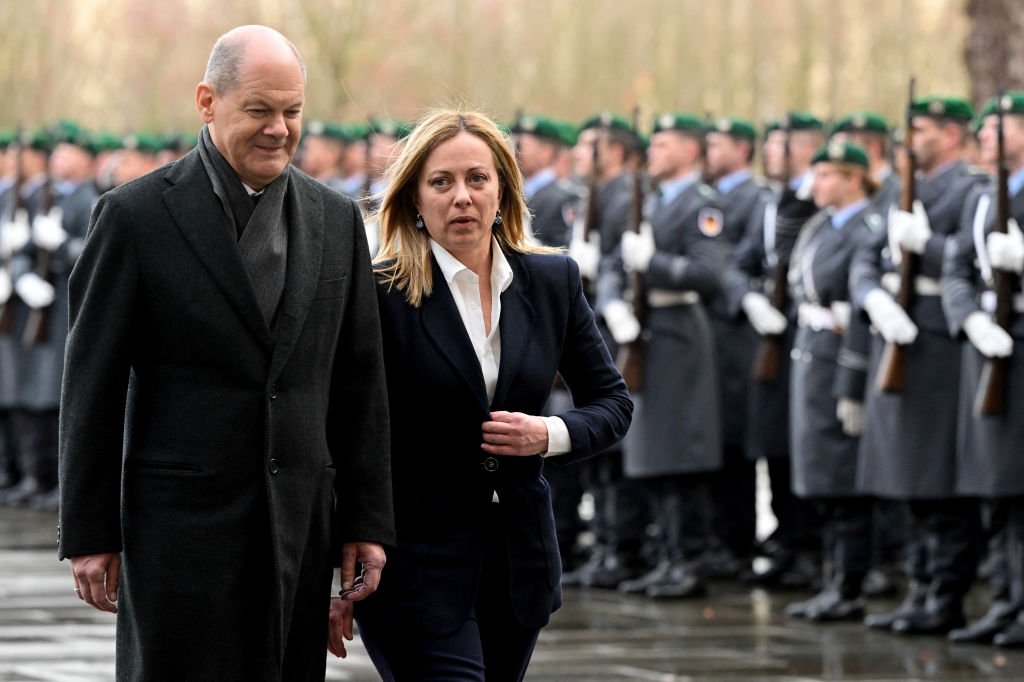
Firstly, Italy is due to get far more of the EU’s Covid Recovery Fund cash than any other member state — €200 billion, or $212 billion (one quarter of the total) between 2021 and 2026 in the shape of loans and grants — but only on the condition that it introduces dozens of structural reforms. She cannot afford to pick fights with the EU Commission. Secondly, she does not have the allies to win a fight with the EU — yet. For that she needs to build up a network of alliances and gain a controlling role in the European parliament, which has a big say over the key appointments in the Commission. That is where the real power lies in the EU.
At the last European parliament elections in 2019, Fratelli d’Italia got only 6.4 percent of the vote and five Members of the European Parliament (increased to eight thanks to Brexit and defections), but she is president of the parliamentary group they belong to — the Euroskeptic European Conservatives and Reformists, or ECR, which was co-founded by Britain’s David Cameron in 2009. Currently, the ECR has sixty-four MEPs (oh how they regret the departure of the Tories!).
Traditionally, the European People’s Party group, or EPP — which brings together mainly Christian Democratic parties, with 176 MEPs at present — has controlled the parliament, which post-Brexit has 705 seats. This is usually done in alliance with its natural opponents the Socialists (S&D), on 144 MEPs, though occasionally with Renew (formerly the Liberals), which has 102 MEPs (including Macron’s MEPs plus Guy Verhofstadt). In recent parliaments, however, the EPP’s share of the seats has decreased substantially and its need for allies has increased.
Meloni aims to replace the S&D, mired in the multimillion-euro Qatargate scandal, with the ECR as the main ally of the EPP at the Euro elections next year, when Fratelli d’Italia is predicted to increase its share of seats dramatically. But so too are other members of the ECR, notably Spain’s Vox — which could end up as the junior partner in what the polls predict will be a right-wing coalition government in the Spanish elections this year. So too are the Sweden Democrats, who did very well at the Swedish elections in September, and whose support is vital to the new right-wing government.
Neither Marine Le Pen’s National Rally, Salvini’s Lega or Germany’s Alternative for Germany are in the ECR but in the rival Identity and Democracy (ID) group, which also has sixty-four MEPs. The Lega, which has seen its popularity slump since its heyday at the last Euro elections in 2019, will not be able to repeat its spectacular 34 percent. While many in the EPP regard the ID as beyond the pale, they are much more open to an alliance with the ECR. Meloni will undoubtedly try to prize Salvini’s party away from the ID, and he will now be more likely to acquiesce.
Manfred Weber — the EPP’s leader from the Christian Social Union, the Bavarian version of Merkel’s Christian Democratic Union — has met Meloni twice in Rome since she was elected. The most recent was after Benedict XVI’s funeral in January. Hungary’s pro-Putin Prime Minister Viktor Orbán, whose Fidesz party was a member of the EPP and is no longer part of any group, also attended the funeral, but conspicuously Meloni did not meet him. Other high-profile EU visitors to Meloni include EU Commission president Ursula von der Leyen in January, and EU parliament president Roberta Metsola in February. Metsola, from the conservative Maltese Nationalist Party, would be a key figure in any alliance between the EPP and the ECR, who want her to replace von der Leyen as EU Commission president. Metsola, in return, would agree to the ECR’s candidate in her place as president of the parliament.
The confederal Europe Meloni wants is one in which the principle of subsidiarity prevails. As she told Vespa: “Brussels should not do what Rome can do better.” When he asked if EU law should prevail over Italian law in cases of conflict, she replied: “The German constitutional court has ruled in favor of the national interest in the most contentious cases.”
Meloni’s visit last week to Kyiv, hot on the heels of Joe Biden, to meet Volodymyr Zelensky and assure him that Italy would back him with arms “until the end” was highly significant. Whereas Macron has chopped and changed with regard to how Europe should react to Vladimir Putin’s invasion, and Scholz has dithered, Meloni’s support for both sanctions on Russia and arms to Ukraine has been unequivocal from the start of the war when she was still in opposition.
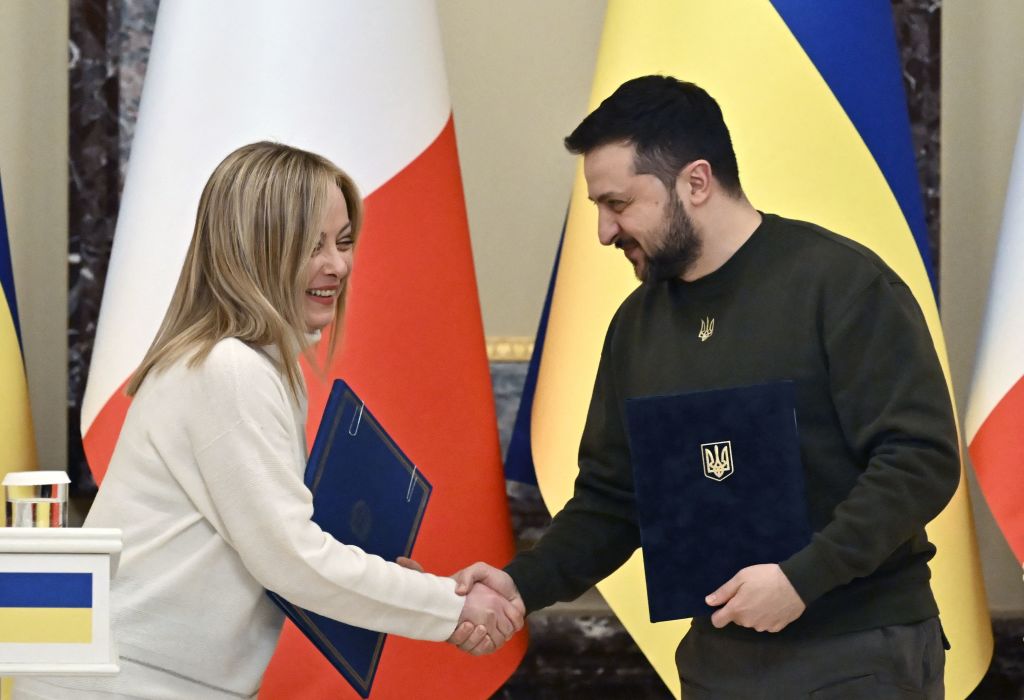
Many commentators said that Macron’s decision to invite only Scholz and not Meloni to meet Zelensky in Paris two weeks earlier was a clear sign that the leader of the EU’s third largest economy had been marginalized from the EU’s engine room. They also said that Meloni was badly weakened by an extraordinary claim before her Kyiv trip by Berlusconi, an old friend of Putin’s, that if he were prime minister he would never go to meet Zelensky because his attacks on Donbas had caused the devastation in Ukraine.
Meloni has simply ignored Berlusconi’s comment. At the joint press conference in Kyiv, an Italian reporter asked Zelensky if the former prime minister’s words made him fear Italy’s position had changed. He mocked the reporter, saying that the whole of Ukraine could talk of nothing else, before criticizing Berlusconi for failing to understand what it is like to be on the receiving end of Russia’s ‘brotherly love’. Salvini, meanwhile, who before the war was one of Putin’s loudest supporters and often wore pro-Putin T-shirts, has been noticeably quiet since the invasion. And when push has come to shove, both Forza Italia and the Lega have voted in favor of arms and sanctions.
The Italian prime minister is riding roughshod not only over her two coalition partners but also the majority of her country who oppose sending arms to Ukraine (just over a third of Italians regard Russia as the enemy, compared with two-thirds in America and Britain, and a quarter even regard Russia as an ally). She is able to do this because the opposition to arming Ukraine is transversal. It is most pronounced on the extreme right and the extreme left. A famous communist cartoonist, for example, who has spent his life lampooning Berlusconi, now says he wants to kiss him.
“Meloni is now leader of the European right,” said Massimo Cacciari, a philosophy professor, former communist MP, ex-mayor of Venice and talkshow regular this week. “And the traditional European coalition of social democratic forces and popular-Catholic forces is losing water… Meloni and those around her will be able to move the axis of European politics at the next elections. That’s the strategy they’re pursuing.”
This article was originally published in The Spectator’s UK magazine. Subscribe to the World edition here.



